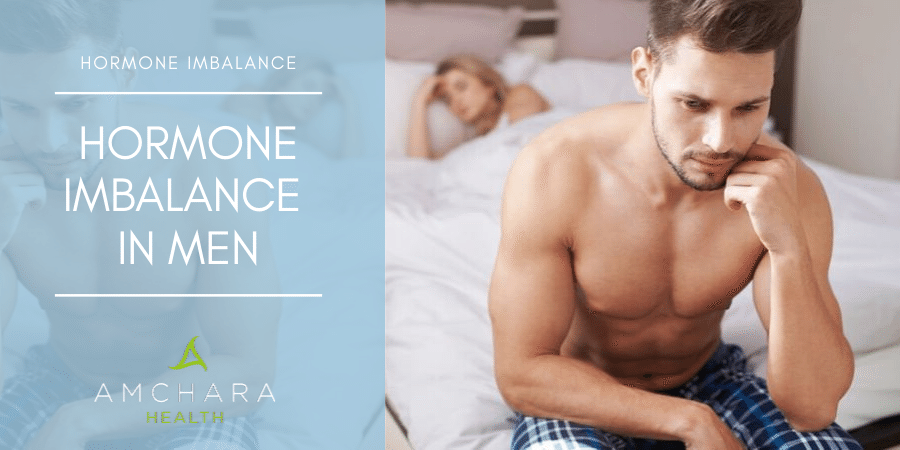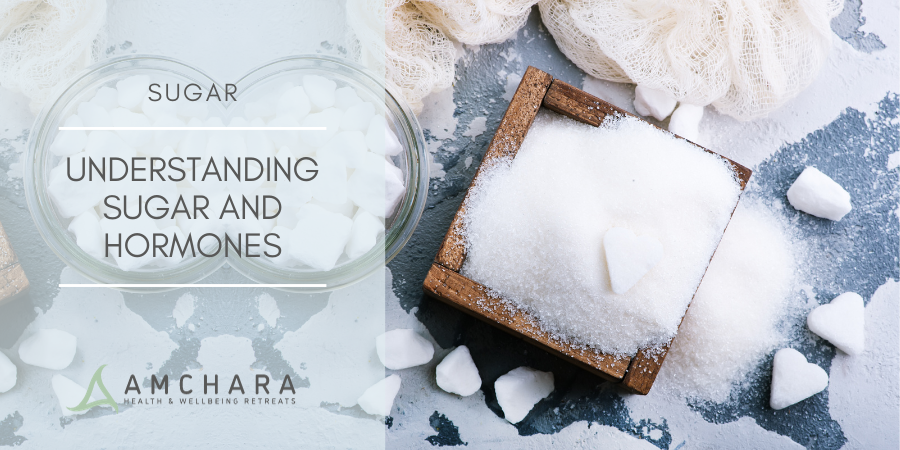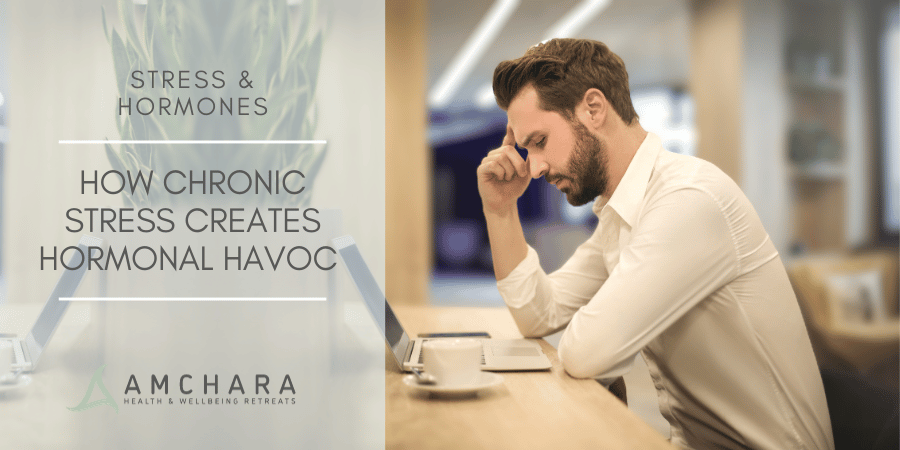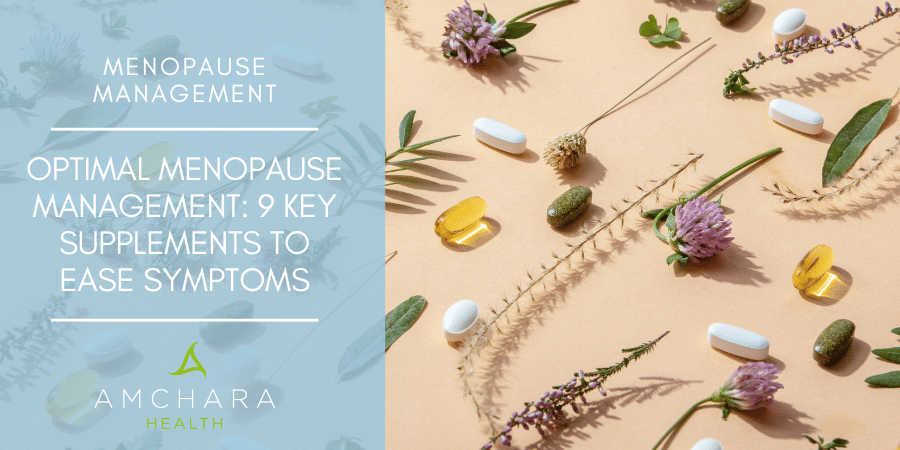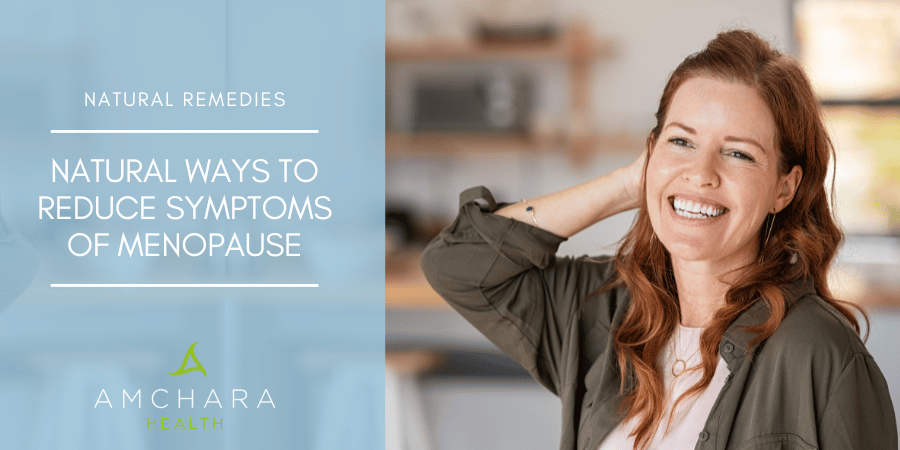It is well known that women experience hormonal imbalances at different stages in their life, according to their reproductive cycles, and that these can have a significant impact on their health.
But what about the impact of hormones on men and male health?
In the modern internet world there is an overwhelming amount of information and it can be hard for you to find health advice you can trust, particularly as the main media channels are typically dominated with a single, orthodox narrative.
Our mission is to provide you with both insightful information and evidence-based content to provide you with actionable knowledge and tips to help you on your journey to optimal health.
This article covers the differences between male and female hormones, as well as the symptoms and consequences of male hormone imbalance and treatment options. A range of natural remedies are also suggested as a guide to improving some of the conditions men may encounter as a result of changing hormone levels.
Can men have hormone imbalances?
The answer is yes, however not much is written about it – apart from a brief period of time during the 1950s and 1960s when the popular press wrote about the ‘male menopause’ or ‘andropause’.
The jury is currently out as to whether men have an equivalent change in hormones mirroring the female menopause. Regardless of this, the symptoms they experience are no less distressing and should be given equal importance when considering treatment options.
Because this is a long article, we have included a table of contents below.
There are also jump links at the end of each section of the post that will bring you back up to the top.
Male hormones versus female hormones
Androgens are a group of steroid hormones that stimulate the development and maintenance of male characteristics. They are manufactured mainly by the testes but are also produced by the adrenal glands and are present in both men and women.
The principle androgens are testosterone, dihydrotestosterone and androstenedione.
Testosterone, also formed in the ovaries of women is the precursor to ‘estradiol’ – a form of oestrogen.
Whilst women and men both start out in life with low levels of testosterone and oestrogen, changes take place at puberty meaning that women have higher levels of oestrogen and men have more testosterone.
Testosterone has a number of functions including:
- regulating libido
- regulating bone mass
- regulating muscle strength
- sperm production
- red blood cell manufacture
Testosterone is also associated with aggressive behaviour and cognitive function.
Only a small amount of testosterone is converted to estradiol, and as men age they usually make less testosterone and subsequently less estradiol. So it may be that hormonal changes, often attributed to low levels of testosterone, are partly or possibly entirely due to declining levels of oestrogen.
Around the age of 50, men secrete progressively lower amounts of testosterone. About 20% of men have lower than normal levels by the time they reach 60 and are left with higher oestrogen levels than women of the same age.
Where women are concerned, there is a fairly abrupt decline in female hormones usually between the age of 46 to 52, when menopause occurs. At the same time ovulation ceases and brings a natural end to fertility.
Despite testosterone levels declining in mid-life for men, their fertility is not affected. In some instances men experience a more significant hormonal decline than others.
Research carried out in 1999 by Philip and Tan, revealed that smoking appeared to be the only consistent factor in the early onset of hormonal withdrawal. The same results emerged in relation to women who smoked and experienced early menopause.
12 common signs of hormonal imbalance in men
Men, like women, can be affected by changes in levels of insulin, adrenaline, steroids and growth hormones; however, men are most likely to be affected by imbalances in testosterone levels.
Partly because it’s not typically a common topic for discussion amongst men, any symptoms that might be attributed to hormone imbalances are often disregarded until they start to seriously affect an individual’s quality of life.
These are the signs of hormonal changes:
- Deterioration in muscle strength
- Acne
- Lack of energy
- Disturbed sleep
- Memory loss
- Whole body hair loss
- Weight gain
- Frequent urination
- Anxiety & depression
- Irritability
- Poor concentration and indecisiveness
- Low sex-drive and impotence
What causes male hormone imbalances?
The endocrine glands that control hormone regulation can be affected by environmental and lifestyle factors, as well as by some medical conditions.
Factors that may play a role include:
- Chronic stress
- Obesity and overweight
- Under/over active thyroid
- Overuse of anabolic steroids
- Exposure to environmental oestrogens
- Diabetes (Type 1 and 2)
- Poor adrenal function
- Puberty
- Ageing
- Environmental toxins, pollutants, pesticides and herbicides
- Poor nutrition, digestion and absorption
- Diets with a high glycaemic index
Male health conditions associated with hormone imbalance
Male hormone imbalances can result in a number of health disorders including:
- Erectile dysfunction
- Benign prostatic hyperplasia (BPH)
- Impotence
- Acne
- Male pattern baldness
- Gynaecomastia
- Low libido
- Infertility
Some of these conditions are due to elevated levels of insulin or decreasing levels of testosterone, and in some cases an imbalance in the ratio of oestrogen to testosterone.
BPH – is a non-cancerous enlargement of the prostate. It is characterised by the urge to urinate frequently as well as difficulty passing urine. The hormone dihydrotestosterone (DHT), derived from testosterone, is thought to be a key player in the overproduction of prostate cells that lead to this condition.
Erectile dysfunction & impotence – is one of the most distressing symptoms men seek medical help for. It is thought to be due to a reduced production of testosterone, which upsets the equilibrium between androgen and oestrogen, raising oestrogen levels. Exposure to environmental oestrogen is also implicated. As well as hormone imbalances two of the most common causes of impotence include alcohol consumption and smoking.
Hormonal acne – is a condition common amongst men that develops in response to hormonal changes such as increasing testosterone levels. Rising androgen levels can trigger elevated sebum production, inflammation and a colonisation of bacteria in the hair follicles, which culminates in acne.
Acne is regarded as an androgen dependant disease, but it seems the hormones insulin and IGF-1 (insulin-like growth factor) are also implicated. IGF-1 has a direct influence on androgen regulation of the skin.
According to research nutritional influences that increase IGF-1 secretion are frequently linked to acne. High milk consumption is associated with a 10-20% increase in circulating IGF‐1 levels, particularly skimmed milk.
Male pattern baldness – is thought to develop when the body converts testosterone into DHT, although there may be a genetic factor to it.
It seems some men have hair follicles that are sensitive to an excess of DHT, which causes the hair follicles to shrink. This can result in finer hair and eventually baldness.
Gynaecomastia – is a swelling of the male breast gland, caused by an imbalance of the hormones testosterone and oestrogen. As well as swollen breasts individuals may feel tenderness in the breast tissue. Certain diseases and some medications can also cause gynaecomastia.
Low libido – again, this is often due to low testosterone levels, but may also be caused by certain medications, ill health, depression, recreational drugs, excessive alcohol, relationship issues and erectile dysfunction. Lack of libido is far less common in men than erectile dysfunction.
Infertility – is the inability to conceive. For some men low levels of testosterone may result in decreased production of sperm. Other factors that contribute to this can include a poor diet, smoking, stress, excess weight, environmental oestrogens and prostate disorders.
Treating male hormone imbalance
Orthodox treatment for men with declining testosterone levels seems to be primarily focused on androgen replacement therapy.
Androgen therapy generally involves the administration of testosterone via skin creams or through injection.
Although this is currently available it is not suitable for all men as testosterone levels vary greatly, with some men having only a moderate decrease in their plasma testosterone levels. Indeed, there appears to be some risk involved as androgen substitution may have adverse effects on the liver, prostate health, heart disease, sleep disorders and emotional behaviours.
On a more positive note some studies suggest that elderly males who are depressed appear to have the lowest testosterone levels, so using androgen therapy may prove beneficial where conventional antidepressants have failed.
Natural support for male hormone imbalance
There are six key strategies for balancing male hormones.
The good news is they are all easily established with a little determination and a positive approach.
#1. Introduce good nutrition and supportive supplements
High quality, nutrient dense food is the best place to start and you should aim to work as naturally as possible with food by avoiding highly refined and processed foods that are full of sugar, salt, saturated fats, hydrogenated trans fats, additives and salt. You can spot these by checking labels on food packaging.
To maintain healthy hormone balance you need certain nutrients in order for the body to produce and regulate them, which is dependent on optimal digestion and absorption.
Many factors can affect your digestive system, particularly your choice of foods. Some people are better able to cope with certain foods than others.
Ideally your daily diet should include good quality lean protein, such as fish, chicken, eggs, nuts, seeds, beans and pulses, coupled with 5-7 portions of vegetables and 2 or 3 portions of fruit, preferably organic. Berries are a particularly good choice because of their low sugar content and high levels of antioxidants and flavonoids.
If you are not avoiding gluten, then moderate portions of organic whole grains that are high in fibre can compliment a healthy diet (millet, quinoa, oats, barley, rye and bulgur wheat).
* Fibre helps to carry used hormones such as oestrogen from the body.
Healthy fats are especially important
The omega-3 essential fatty acids found in walnuts, flaxseeds and oily fish are vital for maintaining cell membrane flexibility, which helps with the transport of hormones in and out of cells. Avocados, coconut oil, flaxseed oil, walnut oil and nut butters are great additions for a healthier diet too.
Supplements can be useful to make up short falls where the body has clear deficiencies or absorption issues. They can also provide more concentrated levels of nutrients, working faster than many foods, particularly in situations where access to high quality organic foods is challenging or hindered by a busy timetable.
Prostate health can be improved by focusing on nutrients such as zinc, vitamin C, vitamin E and omega-3 essential fatty acids. Pumpkin and sunflower seeds are rich sources of zinc and vitamin E. For a boost of vitamin C go for guava, broccoli, kale and bell peppers, which contain high levels.
Erectile dysfunction (ED) happens when blood flow to the penis is restricted. This may be improved by including arginine in the diet. Arginine is an amino acid that produces nitric oxide, which naturally dilates the blood vessels thereby helping maintain blood flow to the sexual organs. Arginine can be found in a range of food such as turkey, pork, nuts, legumes, and whole grains.
The herb Ginkgo biloba can be beneficial because it helps to widen blood vessels, promoting healthy blood flow.
Encouraging results from one trial on 60 patients with ED not responding to standard medication found that 50 % of the participants had regained their potency. Ginkgo leaves can be used as an infusion for tea.
Korean red ginseng has the same positive effects on blood flow, and is supported by research.
Male pattern baldness might be prevented by drinking green tea and taking plant remedies such as saw palmetto. These are thought to play a role in keeping DHT formation low.
Infertility can be multi-factorial, but if sperm number and motility is an issue, there are a number of nutrients to support healthy sperm. The minerals selenium and zinc, together with omega-3 essential fatty acids, plus amino acids arginine and carnitine, appear to help the sperm to reach their destination.
#2. Support your thyroid function
Both hypothyroidism (low thyroid function) and hyperthyroidism (over-activity of the thyroid) are serious medical conditions and can affect all tissues of the body, including the endocrine glands.
Free testosterone concentrations are found to be low in men with hypothyroidism and raised in those with hyperthyroidism, which can have a marked effect on bodily functions such as sperm production.
Gynaecomastia is commonly seen in men with hyperthyroidism, due to elevated levels of oestrogen.
Normal thyroid function is dependant on iodine and selenium. Foods that contain iodine include seaweed such as kelp and iodised salt. Brazil nuts and eggs are rich sources of selenium.
However individuals with hyperthyroidism should avoid iodine rich foods.
Eating large amounts of raw cruciferous vegetables can affect the uptake of iodine into the thyroid gland because they contain substances called goitrogens. Veggies to avoid are broccoli, Brussel sprouts, cauliflower, kale, bok choy, bamboo shoots and collard greens. However, cooking these vegetables destroys the enzyme responsible for activating the goitrogens.
A diet containing high levels of saturated fat and green tea has also been shown to negatively affect thyroid function.
If you have any concerns regarding your thyroid function it is vital that you contact your GP and seek medical advice.
#3. Stabilise your blood glucose (sugar) levels
After eating a meal, your pancreas responds to the rise in blood glucose levels by secreting insulin. This important hormone is needed to transport the glucose into your cells, after which blood sugar levels return to normal. Low levels of blood glucose can trigger the release of adrenaline and cortisol by the adrenal glands. These stress hormones prompt the liver to release more glucose into the blood stream.
Eating a diet high in sugar places an increased demand on the pancreas to produce more insulin, which may lead to insulin resistance. Constant fluctuations in blood glucose levels have a detrimental effect on hormone balance.
Keeping blood sugar balanced throughout the day helps to regulate insulin secretion and reduce IGF-1 levels, which as mentioned earlier plays a role in the progression of acne.
Replacing highly processed, sugary foods such as white bread, white pasta, biscuits, crisps, pastry and cakes, with complex carbohydrates such as vegetables, fruit, nuts, seeds and whole grains, helps to slow down the release of sugar into the blood circulation. Adding protein and healthy fats to each meal also helps to control blood sugar balance.
#4. Work on managing stress
Often stress is a major factor in male hormone imbalances.
Chronic stress that is not dealt with results in elevated levels of cortisol, throwing hormones out of balance and increasing the risk of many health problems such as weight gain, high blood pressure, poor immune function and diabetes.
Regular exercise can help the body to utilise stress hormones. It is also advisable to find quiet time for yourself to relax every day. Relaxation can be enhanced with the use of meditation, yoga and tai chi.
According to research Rhodiola – a commonly used medicinal herb – can help the body to adapt to stress and is therefore a useful remedy for helping to counter the effects of chronic stress.
#5. Get plenty of sleep
Whilst you are sleeping your body carries out essential repairs using the main repair hormone DHEA (dehydroepiandrosterone). These repairs are most effective during deep restorative sleep, which is also enhanced by DHEA.
Stressed people have difficulty sleeping and the subsequent lack of sleep means that DHEA cannot carry out its repairs. This increases stress on the body and so it becomes a vicious cycle.
Keeping to a routine, by going to sleep at the same time every night and waking at the same time (even if it means setting an alarm), helps to maintain a healthy sleep cycle. The room you sleep in should be sufficiently dark and not too hot. Switch off your TV, mobile and computer well before bedtime to give your brain the opportunity to wind down.
The herb Valerian and the amino acid L-theanine found in black tea have both been shown to relax the body and promote restful sleep.
#6. Support your liver
The liver helps to metabolise used hormones and eliminate them from the body. Men with liver disease have been shown to develop gynaecomastia and spider veins as a result of the liver’s inability to metabolise oestrogen.
Burdening the liver with too many environmental toxins and a poor diet can compromise its function. Liver health can be enhanced by avoiding alcohol, saturated fats and excess toxins such as: caffeine, drugs, chemicals, pesticides, additives and solvents.
The herbal remedies dandelion root and Milk thistle have been shown to help improve liver function.
If you need a helping hand with liver support, an Amchara retreat is the perfect place to start the detoxification process.
Our expert Personalised Health practitioners can guide you through the necessary steps to bring about optimal liver function and improve your nutrition and lifestyle.
Did you find this article useful? Have you taken a natural approach to balancing hormonal issues?
We’d love to hear your thoughts, get in touch!
*Please note: Nutritional advice given is appropriate to the general public and may not suit individual dietary restrictions. Where possible Amchara recommends a healthy approach to eating which excludes dairy, sugar and gluten containing produce, but this may not suit all people. Organic foods free from dairy, gluten and sugar are available in local health food stores and some supermarkets, giving you the option to adjust menus and still enjoy your favourite foods. It is important to maintain balance and variety in any diet and above all enjoy guilt free eating that promotes optimal well-being.
